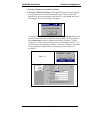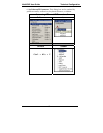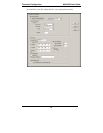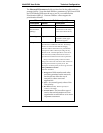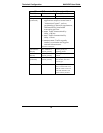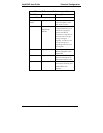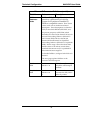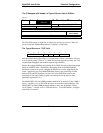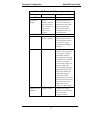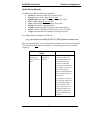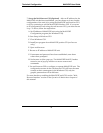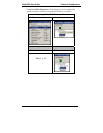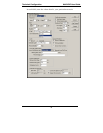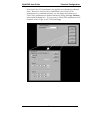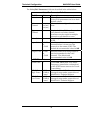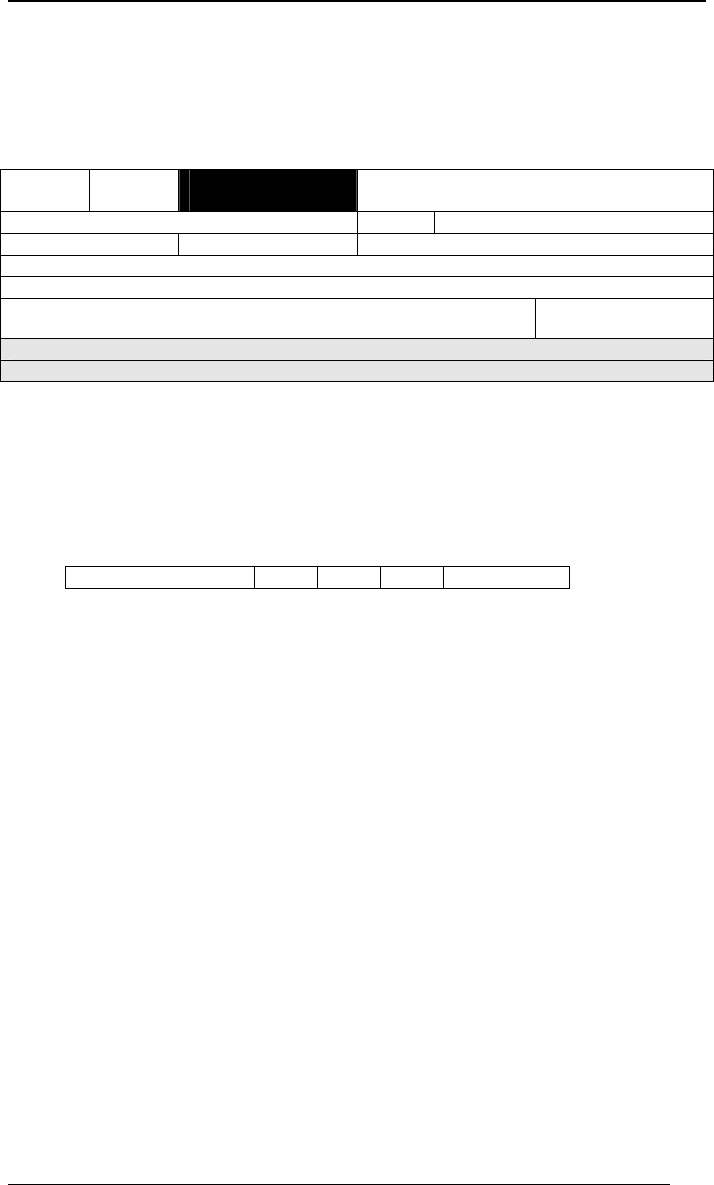
MultiVOIP User Guide Technical Configuration
71
The IP Datagram with Header, Its Type-of-Service field, & DiffServ
bits =>
0 4 8 16 19 24 31
VERS HLEN
TYPE OF
SERVICE
TOTAL LENGTH
IDENTIFICATION
FLAGS
FRAGMENT OFFSET
TIME TO LIVE PROTOCOL HEADER CHECKSUM
SOURCE IP ADDRESS
DESTINATION IP ADDRESS
IP OPTIONS (if any) PADDING …
end of header
DATA
…
The TOS field consists of eight bits, of which only the first six are used. These six
bits are called the “Differentiated Service Codepoint” or DSCP bits.
The Type of Service or “TOS” field
0 1 2 3 4 5 6 7
PRECEDENCE D T R
unused
three precedence have eight values, 0-7, ranging from “normal” precedence (value of
0) to “network control” (value of 7). When set, the D bit requests low delay, the T bit
requests high throughput, and the R bit requests high reliability.
Routers that support DiffServ can examine the six DSCP bits and prioritize the packet
based on the DSCP value. The DiffServ Parameters fields in the MultiVOIP IP
Parameters screen allow you to configure the DSCP bits to values supported by the
router. Specifically, the Voip Media PHB field relates to the prioritizing of audio
packets (RTP and RTCP packets) and the Call Control PHB field relates to the
prioritzing of non-audio packets (packets concerning call set-up and tear-down,
gatekeeper registration, etc.).
The MultiVOIP Call Control PHB parameter defaults to 34 decimal (22 hex; 100010
binary – consider vis-à-vis TOS field above) for Assured Forwarding behavior. The
MultiVOIP Voip Media PHB parameter defaults to the value 46 decimal (2E hex;
101110 binary – consider vis-à-vis TOS field above). To disable DiffServ, configure
both fields to 0 decimal.



